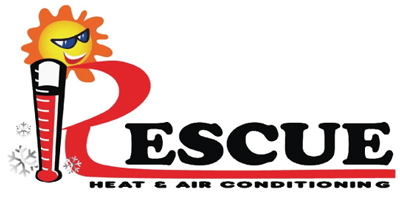
Big changes are on the horizon for the heating and cooling industry! Cooling systems shifting from R-410a to newer refrigerants like R-454B refrigerant and R-32 refrigerant will be implemented in 2025. These new coolants are designed to be more beneficial to the environment and comply with new regulations about global warming. But what does that mean for your current HVAC system and upcoming services?
This change will decrease the environmental effect of our air conditioning systems. In 2025, new AC systems will utilize a a different class of refrigerants that more closely match with climate goals. If you're thinking about getting an AC replacement soon, this is the opportune time to learn more about how these changes can affect your home's comfort.
Why Is R-410a Refrigerant Being Phased Out by New Regulations?
For years, R-410a was the standard refrigerant for residential air conditioners because of its effectiveness. But studies revealed that R-410a still negatively impacts global warming. In response, the Environmental Protection Agency (EPA) implemented an initiative back in 2021. The industry will steadily phase out R-410a to introduce refrigerants that are more eco-friendly.
The HVAC industry has undergone shifts like this before. When the industry switched from using R-22 (commonly called Freon) to R-410a, homeowners like you had to adapt. And similarly, this change will affect how systems are engineered as well as the recommended procedures for HVAC maintenance. Both homeowners and HVAC technicians need to plan for these new refrigerants if they wish to continue enjoying the most secure, most economical cooling possible.
New HVAC Refrigerants Replacing R-410a?
The upcoming refrigerants fall under the new "A2L" classification and encompass the newest R-454B refrigerant and R-32 refrigerant coolants. They're designed to offer the same effective cooling while significantly reducing their global warming potential (GWP) compared to R-410a.
R-454B refrigerant is expected to be especially useful due to its GWP being about 78% less than R-410a. Although R-454B refrigerant is technically more flammable than R-410a, updates to system designs and maintenance practices will ensure servicing is just as safe to perform. Additionally, modern cooling systems using R-454B refrigerant are considerably more energy efficient, contributing to big savings on energy bills over time, especially if you stay on top of routine HVAC maintenance.
This transition isn't simply about replacing the refrigerant—it affects the whole HVAC system because the components of R-454B refrigerant make it not suitable for use in older systems. In time, every residence and business using R-410a will have to switch to one of the new systems.
R-410a Replacement: What Should I Consider in Order to Switch to New HVAC Refrigerants?
Transitioning to the new refrigerants won't be as straightforward as swapping out the new coolants with what's used in your current HVAC system. That's because the different properties of R-454B refrigerant and R-32 refrigerant mean you can't use them in a system that uses R-410a. But don't worry—you can still use your current R-410a system for now. Just remember that as time passes, the cost of repairs and tune-ups will increase as R-410a becomes harder to find.
Preparing in advance is the optimal way to manage things. If your AC system is already aging, this is the perfect time to consider switching to a newer model that uses the new R-454B refrigerant. Plus, the HVAC specialists here at Rescue Heating & Air can support you with making the transition with flexible options for HVAC replacement financing.
What Type of Cooling Refrigerant Is in My HVAC System?
Uncertain which refrigerant your AC system employs? In general, you can easily find this information by inspecting the label on your outdoor unit. This label displays the type of refrigerant, the model number and many other specifications about your cooling system.
But if you have difficulty reading the label or don't have your user manual, don't stress! You can always connect with one of the professional technicians at Rescue Heating & Air to help you in determining this information. Get all the details you need by giving us a call at 361-265-4371.
